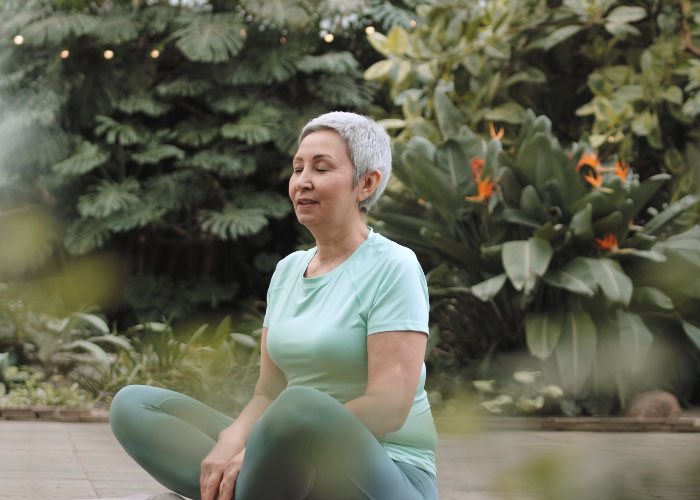How Long Concussion Could Offer New Insights into Long COVID
As the world grapples with the lingering effects of the COVID-19 pandemic, a new area of research is emerging that could provide valuable insights into a particularly challenging aspect of the virus: Long COVID. This condition, characterized by persistent symptoms that continue for weeks or months after the acute phase of the infection has passed, shares surprising similarities with another complex medical issue—prolonged concussion symptoms, often referred to as Post-Concussion Syndrome (PCS). Exploring these parallels may unlock new understanding and treatment strategies for Long COVID.
Understanding Long COVID and Long Concussion
Long COVID
Long COVID, also known as post-acute sequelae of SARS-CoV-2 infection (PASC), affects a significant proportion of people who have recovered from the initial COVID-19 infection. Symptoms can include fatigue, brain fog, headaches, shortness of breath, and a host of other debilitating issues that severely impact quality of life. The exact mechanisms driving Long COVID remain elusive, complicating efforts to develop effective treatments.
Long Concussion
Similarly, Post-Concussion Syndrome occurs when symptoms of a concussion persist beyond the expected recovery period, sometimes lasting for months or even years. Symptoms of PCS can include persistent headaches, dizziness, cognitive difficulties, sleep disturbances, and emotional instability. Like Long COVID, PCS presents a diagnostic and therapeutic challenge due to its complex and multifaceted nature.
Parallels Between Long COVID and Long Concussion
Researchers have identified several key similarities between Long COVID and prolonged concussion symptoms, suggesting that insights from one condition could inform our understanding of the other.
- Neurological Symptoms
Both Long COVID and PCS prominently feature neurological symptoms such as brain fog, cognitive impairment, and headaches. This overlap suggests that similar pathways in the brain might be affected, potentially involving inflammation, disrupted neural signaling, or vascular changes. - Inflammatory Responses
Chronic inflammation is a common thread in both conditions. In Long COVID, persistent inflammation following the initial viral infection may contribute to ongoing symptoms. Similarly, PCS may involve prolonged inflammatory responses in the brain triggered by the initial injury. - Autonomic Dysfunction
Both conditions can involve dysfunction of the autonomic nervous system, which controls involuntary bodily functions such as heart rate, digestion, and respiratory rate. Symptoms like irregular heartbeats, dizziness, and fatigue seen in both Long COVID and PCS may be linked to this dysregulation. - Psychological Impact
The psychological toll of both conditions is significant, with many patients experiencing anxiety, depression, and sleep disturbances. These psychological symptoms may be secondary to the physical symptoms or could arise independently as part of a broader syndrome.
Potential Insights and Treatment Strategies
Exploring the connections between Long COVID and prolonged concussion symptoms could lead to novel insights and therapeutic approaches. Here are some potential areas of exploration:
- Shared Mechanisms
Investigating the shared mechanisms underlying both conditions could reveal common biological pathways. For instance, if chronic inflammation or autonomic nervous system dysfunction is central to both, targeting these areas might offer relief for sufferers of both conditions. - Biomarkers for Diagnosis and Monitoring
Identifying biomarkers that are common to both conditions could improve diagnosis and monitoring. Biomarkers related to inflammation, neural damage, or autonomic dysfunction might help in tracking disease progression and response to treatment. - Rehabilitation and Therapy
Rehabilitation strategies used for PCS, such as cognitive rehabilitation, vestibular therapy, and graded exercise programs, might be adapted for Long COVID patients. These therapies aim to restore function and improve quality of life through targeted exercises and interventions. - Pharmacological Interventions
Medications that have shown promise in treating prolonged concussion symptoms, such as anti-inflammatory drugs, neuroprotective agents, or medications targeting autonomic dysfunction, could be investigated for their potential benefits in Long COVID.
Conclusion
The parallels between Long COVID and prolonged concussion symptoms open a promising avenue for research and treatment. By understanding the shared mechanisms and exploring common therapeutic strategies, we can better address the challenges posed by these debilitating conditions. Continued collaboration between researchers, healthcare providers, and patients is essential to unlock the full potential of these insights, ultimately improving outcomes for those affected by Long COVID and similar syndromes.

